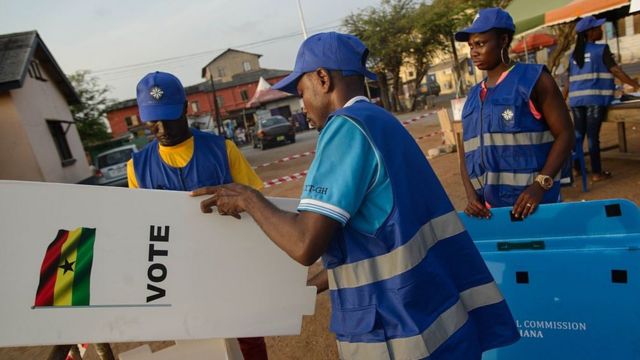BY: Lambert Coffie Atsivor | voltaonlinegh.com |
The 2020 general election is due in the next 24 hours, and from my past election coverage experiences, here is my reporter’s check list for covering the December 7 polls.
Prelude
As a reporter, always bear in mind that;
– Every election in Ghana is governed by law and this year’s is governed by the Public Elections Regulation 2020, Constitutional Instrument, C.I. 127. This guides the processes and procedures for the conduct of the election, from registration, exhibition, filing of nominations, voting and declaration of results, among others. The roles of each of the key players, Electoral Commission and its officials, candidates and electorates are spelt out in this document. It is therefore important as a reporter to acquaint yourself with this regulation.
– Also, elections are always tensed moments, hence as a reporter, you ought to be ALERT and SAFETY CONSCIOUS on the bit. Remember, no story is worth your life.
Now, before you step out for your election reporting duty on December 7, 2020;
- Make time to acquaint yourself with some basic details of the constituency you’re covering i.e. voter population and the candidates in the election.
- Get your working tools, note pad, pen(s), recorder, I.D card in a carrier bag. If you’ll rely solely on your phone, then get a power bank along.
On Election Day
- Dress smart in an attire that would aid free and easy moment. A pair of trousers and a top (be mindful of the colours) with a low heel footwear is ideal.
- Aside your media house identity, always have the Electoral Commission Accreditation with you when stepping out to the voting centres. Because, without it you may not get any assistance from the election officials. If you do not have the E.C accreditation, do not force your way on the officials, especially if they look uncooperative.
- When you arrive at a voting centre, ask of the presiding officer/EC official in charge and introduce yourself to him/her before you go ahead with your job. Do not exhibit your ‘TOO KNOWN’ self and go about your work without the necessary clearance from the official in-charge.
- Enquire about the name of the polling station, number of voters on that particular register and any other details you need to know about the process from the official in-charge.
- Look out for party agents, security personnel (not just those in police uniform), other observers as well as the voters and engage them on the process if possible.
- As a reporter, be skeptical with any information you receive from third parties and always endeavour to verify from officials concerned and other reliable sources, before reporting. Endevour to separate facts from opinions in your reportage.
- Where there is a tension at a voting centre, step back and observe from a distance, record if possible, later speak to the protagonists involved and run their concerns with the appropriate authority for a response. Always know your safety is paramount and you can only live to tell the story.
- At the close of polls, return to the polling station to witness the sorting and counting process. Take note of the voter turnout, valid votes cast, rejected ballots and the results of the various candidates in the elections.
- Note that, until the collation and declaration of the final results for a particular Constituency by the Returning Officer, results from the polling stations are PROVISIONAL and should be reported as such.
- After observing the counting process at some polling centres, you can proceed to the Constituency collation Centre (usually located within the district capital) to monitor the collation of results from the various polling stations and report on it.
- When filing your reports, do so out of the midst of people if possible, also be mindful of your language, i.e. choice of words and do not put anything out that you are not so sure of.
- Above all, be PROFESSIONAL and make use of your COMMON SENSE. Remember, you’re a reporter on the day and not a voter, so do your work devoid of emotions.
- Finally, covering election is a very tedious exercise and you need to psyche yourself up for the long haul. Make arrangement for your food, water and any other necessities you might need to sustain yourself throughout the period.
I wish all media practitioners, the very best as we once again rise up to the occasion to deepen Ghana’s democratic dispensation.
Source: Lambert Coffie Atsivor
Journalist in the Volta Region and Co-founder of Volta Online News Portal




